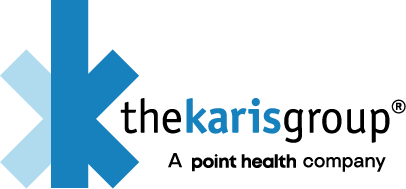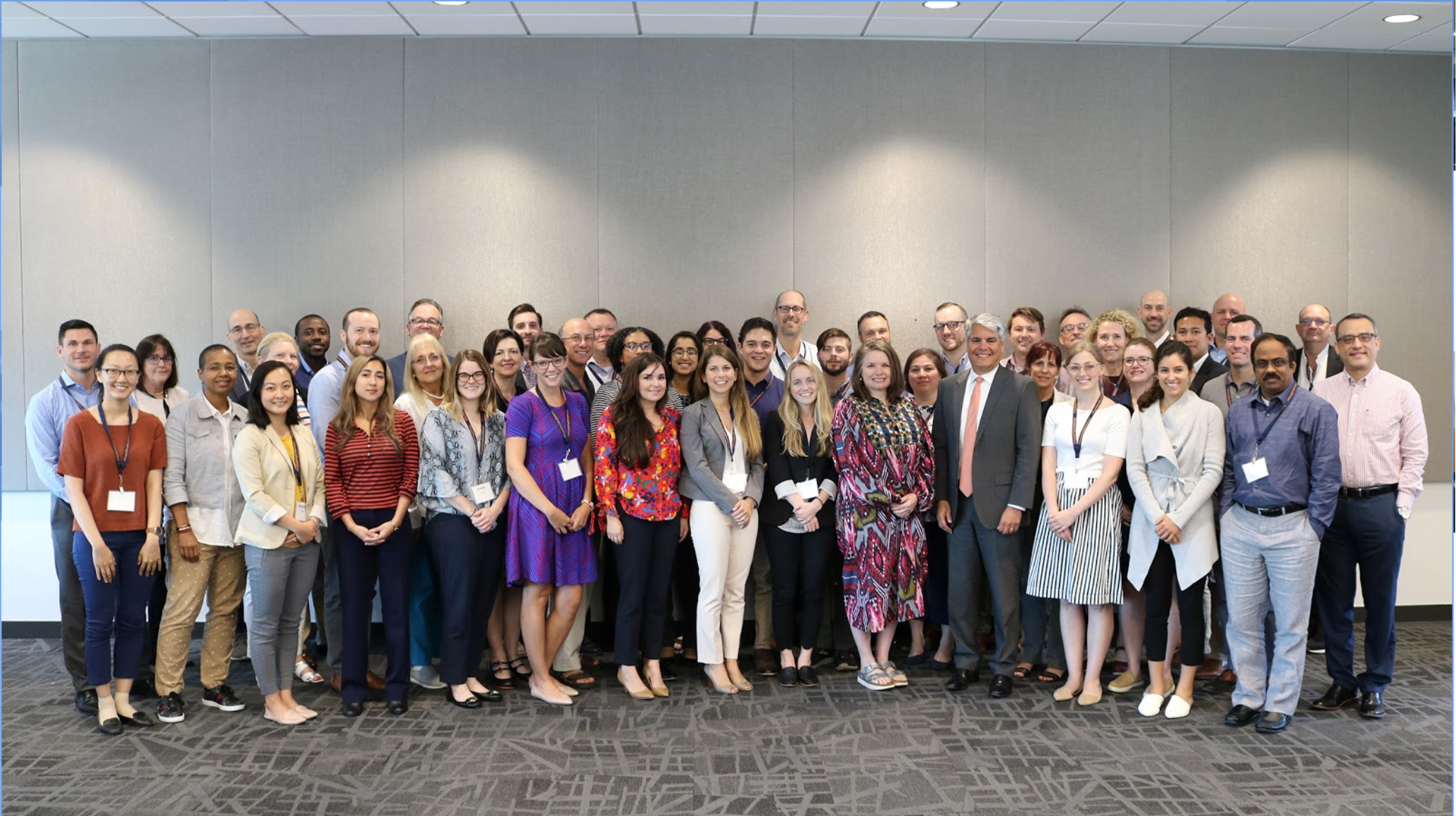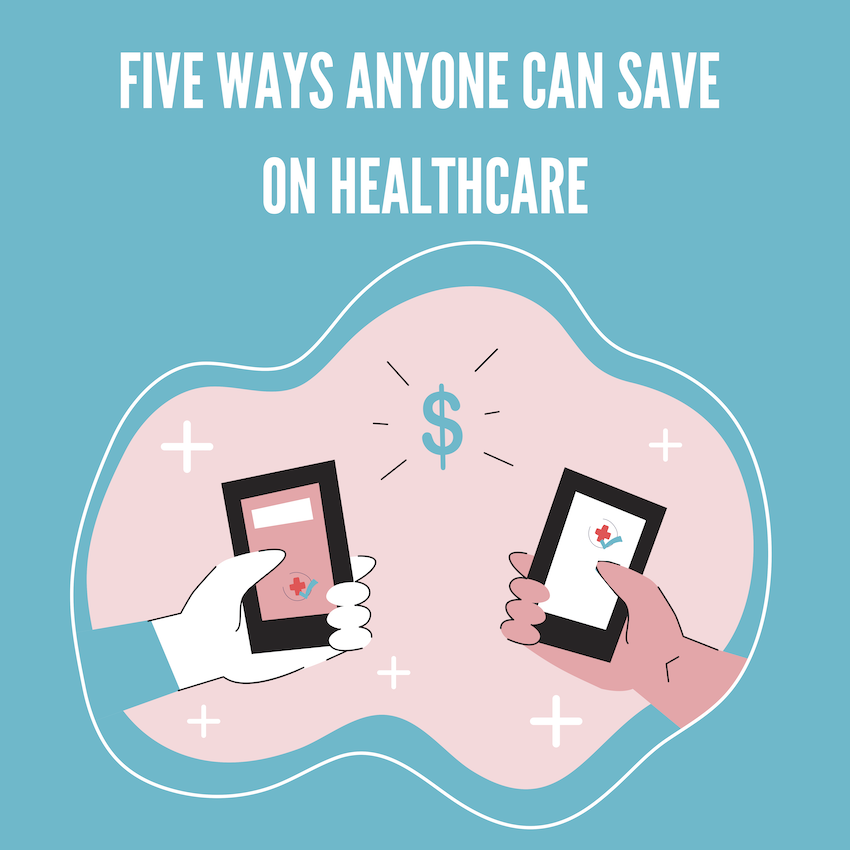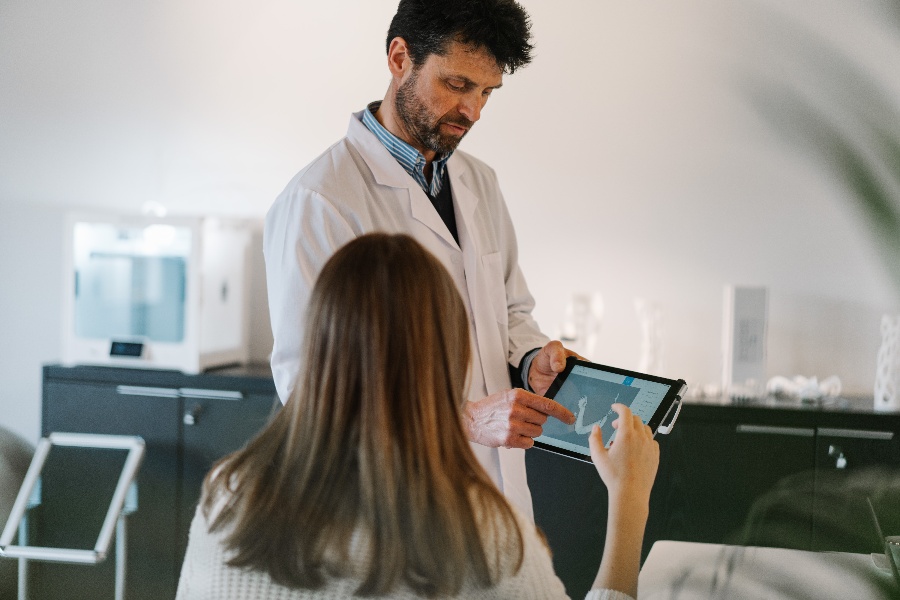Our Director of Marketing, Steven Cutbirth, recently graduated in the inaugural class of the MS in Healthcare Transformation program at the University of Texas at Austin. The program is a first-of-its-kind partnership between the recently opened Dell Medical School and renowned McCombs School of Business.
The program was the brainchild of Dell Med Dean Clay Johnston, UT President Jay Hartzell, and Value Institute for Health and Care Executive Director, Elizabeth Teisberg, and Managing Director Scott Wallace. The MSHCT program is seen through a value-based care lens, and provides students with the tools to accelerate transformation to high-value healthcare delivery.
Our Content Marketing Specialist, Josie Rasberry, sat down with Steven to get the first-hand details about this groundbreaking program.
Josie: What made you want to join this program?
Steven: There’s an old saying that you should never stop learning, and I’ve taken that to heart. When it comes to healthcare especially, there is always something new to learn. I grew up around healthcare, helping out at my Dad’s dental office, and once I entered the professional world I went straight into working with healthcare. Despite all that, I knew I wanted to learn more. I joined the University of Texas at Austin’s Healthcare Transformation program because of my desire to understand the inner workings of healthcare, why things are done the way they are done, and what are better ways to do things. I wanted to learn the levers that can be pulled to drive change. I valued the MSHCT program because it allowed me to hear multiple perspectives from stakeholders across the healthcare spectrum.
Josie: What were some of your favorite lessons from the program?
Steven: It’s hard to pick, but one of my absolute favorites was learning about digital platforms in healthcare. Geoff Parker, who wrote the book on platforms, was one of the guest speakers and it was great to hear from him. We learned how platforms work, how they can be applied to healthcare, and how they can bring together different stakeholders. We also discussed how to grow platforms, the network effects and how they allow for growth and creation of value.
Another course I enjoyed was about how to measure quality, and our professor for that was Kathy Carberry. She’s a nurse who led outcomes measurement at Texas Children's Hospital before joining the faculty. She spoke to us in detail on how measuring what matters for patients leads to value creation. She's writing a book on the topic and was gracious enough to share her early work with us.
Josie: What kind of person should join this program?
Steven: An ideal candidate is someone who is curious and wants to learn more about healthcare, and in particular wants to learn how to not just fit in but to drive change in a system that is inherently broken. People who have that drive and interest and ask tough questions would do well. There’s not one particular stakeholder type that is a best fit. The more diversity the better. Whether you’re a hospital CEO, insurer, emergency room doctor, nurse, medical coding expert, hospital CFO, HR director or pharma executive, as long as you have that curiosity to learn and desire to change the system, this is a great program.
Josie: As someone from the inaugural class of the program, what advice do you have for future students?
Steven: Our last residential actually overlapped with the first residential of the second class, so we did get to share some insights with them. My advice would be more tactical, especially because our class moved to online for our last residentials due to COVID. So, I would say students need to get good at Google Docs and Slack. I would also advise students to be proactive about identifying classmates and getting to know them. I was intimidated at my first residential by some of my more accomplished classmates, but by the end we all became really good friends. There was one person in particular that I never thought we would become friends, but by the end we were planning to go to an Astros game together next year. So have an open mind and make connections. Also, there were some challenges with forming project teams, so come in with an idea for your year-long group project because that will help you a lot.
Josie: What advice do you have for administration or professors to make the program even better?
Steven: Not so much advice, but rather great things I would encourage them to continue to do. The first in-person residential was great and let us begin relationships that really added value in the program, the second was great because it was like a reunion, but then it was unfortunate to lose the third and fourth because of COVID. It’s not their fault, but finishing the class during COVID was a challenge. The group in charge of the course will have to figure out how to still form those relationships without being able to meet in person. I would encourage the administration to be really intentional about allowing students time to form personal relationships. One of my biggest takeaways from the program that spurred really valuable conversations were the relationships I formed.
The program also did a great job of bringing in engaging, high-caliber speakers, so I would just hope they continue to do that for future cohorts.
Josie: What are you most excited to do with your new knowledge and degree?
Steven: I’m excited that I can now listen to health policy wonks talk and actually understand what they’re saying and contribute to the conversation. Also, I’m in a role right now that’s actively driving transformation in healthcare by helping patients to find affordable quality care, so it’s great that I get to use this knowledge to further the work The Karis Group is doing. I’m excited to see how my fellow classmates use their knowledge as well, and how they transform healthcare. I also think Austin will become a larger healthtech hub as Dell Medical School grows. I’m hopeful there will be more healthcare startups in Austin, and that it’ll put Austin even more on the map for healthcare and tech innovation.
It’s encouraging to see that value-based care and the movement to change healthcare are becoming so known that you can now take a course on it. The Karis Group is proud to have a graduate of this program on our team, and we hope more people will take this course and drive transformation in healthcare.
Interested in taking UT’s Healthcare Transformation’s course? Learn more about it here!





